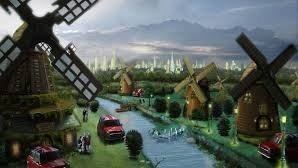
Arquivo para May 9th, 2017
Between ideology and Utopia
The courageous work of Paul Ricoeur “Ideologia e Utopia”, published in 1986 and available in the Portuguese version in 1991, today there are also Brazilian editions such as Autêntica.Editora.
available in the Portuguese version in 1991, today there are also Brazilian editions such as Autêntica.Editora.
The work that Ricoeur taught at the University of Chicago in 1975, and analyzes the subjects from Mannheim to Althusser, Weber, Habermas and Goertz.
The work that Ricoeur taught at the Univesity of Chicago in 1975, na analyzes the subjects from Mannheim to Althusser, Weber, Habermas and Goertz.
However, it was first to approach ideology and the one within a conceptual framework, so I added the “between” because we actually navigate freely today between these two models of a new society, and the demand for change exists, barely ?
The juxtaposition that Ricoeur supposes, and the intersection I use (the “in between”) is to undo the contrast between the two, even though they resist differences, as in the introduction: “juxtaposition … defines and demarcates both, Those of markedly earlier conceptual formulations, in which ideology has been contrasted with both reality and science, and utopia seen as a mere dream, a desirable fantasy … ” (Introduction, page 16).
Although the relation between Ideology and Utopia is unquestionable, as for the fact that they point to a “future”, with these concepts it happens, what with many others that have already been called of spinning by F. Dumond in les Ideologies, and confusing in Critique of Pure Communication by Lucien Sfez.
Ricoeur in re-reading Mannheim, Saint-Simon, and Fourier, utopia, does not suggest reduced pure pathology disconnected from reality, but promotes a necessary critical and fecundation of reality, utopia as poetry to make criticism more human.
It was Marx who wrote “From Utopian Socialism to the Scientific,” without questioning what science was in his time and checking his misconceptions, which made the utopian unreal.
Clarifies Ricoeur in the Introduction; “Typically, ideology has been a topic for sociology or political science, the utopia for history and literature.” (Ibid., page 16)
What Ricoeur does in making a conjunction between utopia and ideology is what he calls the social and cultural imagination, and it is at this point that the critical moment in hermeneutics enters, proposing an alternative to the failed model that opposed science to ideology, a Science itself is questionable today without a positivist and mathematical model.
RICOEUR, P. ideologia e Utopia. Trad. Teresa Louro Perez. Lisboa, edições 70, 1991.

